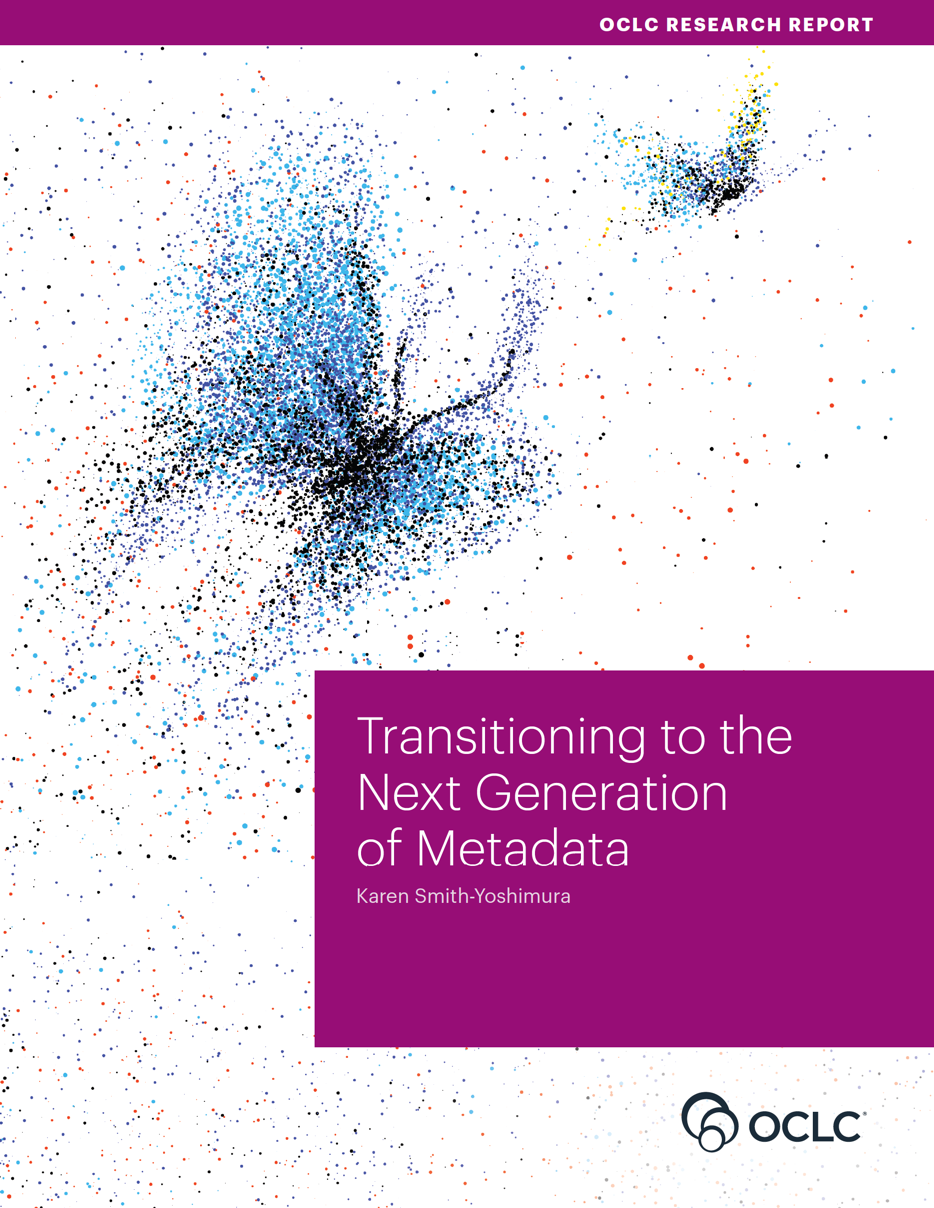Transitioning to the Next Generation of Metadata
by Karen Smith-Yoshimura
This report synthesizes six years (2015-2020) of OCLC Research Library Partners Metadata Managers Focus Group discussions to trace how metadata services are transitioning into the “next generation of metadata” and the impact on future metadata services and staffing requirements.
Transitioning to the Next Generation of Metadata synthesizes six years (2015-2020) of OCLC Research Library Partners Metadata Managers Focus Group discussions and what they may foretell for the “next generation of metadata.” The firm belief that metadata underlies all discovery regardless of format, now and in the future, permeates all Focus Group discussions.
Yet metadata is changing. Innovations in librarianship are exerting pressure on metadata management practices to evolve as librarians are required to provide metadata for far more resources of various types and to collaborate on institutional or multi-institutional projects with fewer staff.
This report considers:
- Why is metadata changing?
- How is the creation process changing?
- How is the metadata itself changing?
- What impact will these changes have on future staffing requirements, and how can libraries prepare?
This report proposes that transitioning to the next generation of metadata is an evolving process, intertwined with changing standards, infrastructures, and tools. Together, Focus Group members came to a common understanding of the challenges, shared possible approaches to address them, and inoculated these ideas into other communities that they interact with.
La versión en español de este informe ha sido gentilmente proporcionada por la Biblioteca Nacional de España:
Questo rapporto è stato tradotto in italiano ed è disponible per la lettura:
Suggested citation:
Smith-Yoshimura, Karen. 2020. Transitioning to the Next Generation of Metadata. Dublin, OH: OCLC Research. https://doi.org/10.25333/rqgd-b343.
Short URL: oc.lc/nextgen-metadata-report
